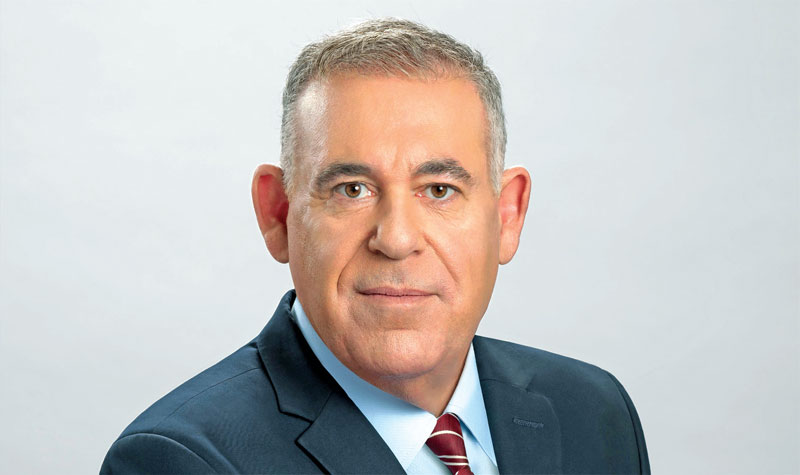Before the Official Indian Self-Reliance Campaign, “Make in India,” IAI Was Already Developing And Manufacturing Products in India, Together With the Local Industry

How has Aero India 2023 been for you? Did it meet your expectations?
It was wonderful to be back in Bangalore for Aero India and spend time with our partners and friends. For the past 30 years, IAI has built close partnerships in India developing and providing various strategic platforms, including air and missile defense systems, unmanned aerial systems (UAS), satellites, radars, training platforms, and others. Our state-of-the-art systems and technologies have been in operational use in India’s three military arms and other government agencies and this event offered an opportunity to continue discussing how we can help them.
You have had a successful collaboration with the DRDO, how do you see this partnership going forward? Are you looking at collaboration with Indian private-sector companies?
Our close collaboration on air defense with our partners at DRDO and India’s Air Force highlights and expresses the professionalism that leads to developing some of the world’s best defense solutions. We will continue expanding our efforts to provide holistic, integrative solutions, including cooperation and joint activity with the government and defense industry in India.
IAI is partnered with over 80 local Indian companies—including those in the private sector—on a variety of projects. Before the official Indian self-reliance campaign, ‘Make in India,’ IAI was already developing and manufacturing products in India, together with the local industry.
Many Indian MSMEs are looking at becoming part of the global supply chain, do you envisage that kind of engagement with the Indian industry?
IAI is proud to collaborate with companies of all different sizes to help our clients. Building a superior product is our top priority and we look to work with partners who are aligned in their mission, irrespective of their size.
What future programmes are you looking forward to in India?
In October 2022, we opened Aerospace Services India (ASI), our new subsidiary in New Delhi and we believe that the sky is the limit. Our investment in ASI is a strong demonstration of our support for the Indian government’s ‘Aatmanirbhar Bharat’—Make in India vision. With ASI on the ground partnering with local companies, we can develop bespoke solutions for the local market.
Can you talk about new technologies, especially in the realm of unmanned and intelligent that IAI is investigating in?
We recently unveiled Point Blank, an electro-optical missile that can take off and land vertically—while being carried, launched and operated by a single soldier. This technology, with electro-optical capabilities, helps detect and attack short-lived targets with great precision. The new device weighs approximately 6.8 kg and is about one meter long. It can fly at altitude heights of 50-500 meters, with a maximum speed of around 80 meters per second, and it can hover in the air for the time needed to validate the target and precision before attacking.
In a nutshell, this innovative missile embodies everything we excel at—precision weaponry and tactical missile development, electro-optical systems for validating intelligence information in real-time, and responding to the operational needs of a modern army.
We understand both current and future combat needs. This missile answers the need for an independent ability to attack a range of targets with high lethality in real-time, and as Israel’s previous IDF Chief of Staff Aviv Kochavi noted on many occasions, lethality is the name of the game. Point Blank can be used by a variety of tactical units, from squad to the battalion level. According to current battle theory, a single soldier with independent and autonomous attack capabilities is an important element in the army ability bank.

